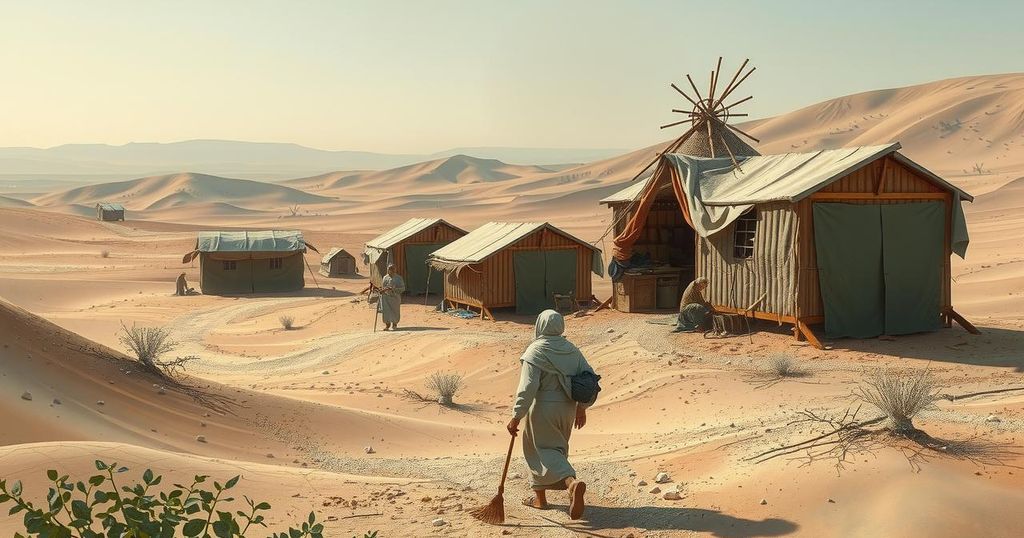Humanitarian Crises in Key Global Regions: An Urgent Call for Aid and Support

The article discusses humanitarian crises in six regions: the Occupied Palestinian Territory, Yemen, Sudan, the Democratic Republic of the Congo, Somalia, and Ukraine, highlighting escalating violence, displacement, and urgent needs for aid and support. Each region faces distinct challenges that contribute to severe civilian hardships.
This article provides an overview of the severe humanitarian crises in various regions, namely the Occupied Palestinian Territory, Yemen, Sudan, the Democratic Republic of the Congo (DRC), Somalia, and Ukraine. Each region faces unique challenges related to conflict, displacement, and natural disasters, resulting in significant civilian hardships and urgent needs for aid and support.
In the Occupied Palestinian Territory, particularly Gaza, the UN Office for the Coordination of Humanitarian Affairs (OCHA) reports ongoing air strikes causing rampant civilian casualties, particularly affecting children. The blockade has exacerbated humanitarian conditions, leading to severe shortages of food, clean water, and medical supplies. Recent assessments reveal acute malnutrition rates doubling among children, with significant trauma reported among displaced families.
Humanitarian efforts are hindered by destruction and access issues, but OCHA urges for a massive influx of aid and calls for an immediate end to the blockade and a permanent ceasefire.
In Yemen, OCHA has raised concerns regarding the impact of air strikes on civilians and health infrastructure. Since Monday, over two dozen air strikes have been documented, resulting in casualties, including children. The humanitarian response remains critically underfunded, with less than 8% of the required funding secured, limiting aid efforts.
In Sudan, OCHA highlights mass displacement due to hostilities in North Darfur, with thousands fleeing violence in places like El Fasher and Zamzam camp. The humanitarian response must adapt to urgent needs, with efforts to provide aid amid increasing challenges. OCHA is working to facilitate the movement of essential supplies across borders while coordinating local relief efforts.
The Democratic Republic of the Congo faces grave violations against children, including forced marriage and recruitment by armed groups amidst ongoing conflict. Schools have been occupied or closed due to violence, denying children their right to education and safety. The UN and partners are striving to ensure humanitarian access and protect children’s rights in this volatile context.
In Somalia, destructive flash floods have affected nearly 30,000 individuals, killing at least four people. Authorities are calling for immediate assistance, including shelter and food aid. However, the humanitarian response is constrained by funding cuts, complicating efforts to meet rising needs among the affected population.
Lastly, ongoing attacks in Ukraine are exacerbating humanitarian requirements as civilian areas face drone and glide bomb attacks. The UN and humanitarian partners are actively providing emergency support, including hot meals, construction materials, and psychosocial assistance to affected communities, amidst the escalating crisis.
In summary, the global humanitarian landscape is marked by critical challenges across multiple regions, from the ongoing conflicts and associated crises in Gaza, Yemen, and Ukraine, to the environmental tragedies in Somalia and the rights violations in the Democratic Republic of the Congo. Immediate and robust humanitarian intervention is essential in each context to alleviate suffering, address urgent needs, ensure the protection of vulnerable populations, and restore stability wherever possible. The international community’s support, both in terms of funding and political engagement, remains crucial for effective humanitarian responses and the enforcement of international humanitarian law.
Original Source: www.unocha.org








